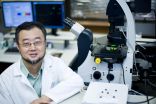(Press-News.org) Washington, DC--Men who have ejaculatory disorders and low testosterone levels did not experience improved sexual function after undergoing testosterone replacement therapy, according to a new study published in the Endocrine Society's Journal of Clinical Endocrinology & Metabolism.
Estimates indicate between 10 percent and 18 percent of men have problems with inability to ejaculate, decreased volume of ejaculation, decreased force of ejaculation and delayed time to ejaculation. This is a separate neurobiological problem from erectile dysfunction, and there is no FDA-approved treatment for the condition.
"This is the first clinical trial examining the treatment of a very common but poorly understood condition that affects men's physical health as well as their interpersonal relationships," said one of the study's authors, Darius A. Paduch, MD, PhD, of NewYork-Presbyterian Hospital/Weill Cornell Medical Center and Weill Cornell Medical College in New York, NY. "Although the participants in this study did not experience any significant improvement in ejaculatory function, we hope our work will spur the development of additional clinical trials to find treatments for this condition."
As part of the multi-center, double-blind, randomized, placebo-controlled, 16-week trial, 76 men with ejaculatory dysfunction were assigned to receive either a 2 percent testosterone solution applied on the skin or a placebo. Sixty-six men completed the study. The men were all 26 years or older with total testosterone levels of less than 300 ng/dL found on two separate tests.
During the study, participants had their testosterone levels measured periodically to determine how well the hormone replacement therapy was working. To gauge ejaculatory function, researchers collected semen samples and had participants complete sexual health questionnaires and logs.
Although the men who received testosterone replacement therapy had higher scores on the Men's Sexual Health Questionnaire on ejaculatory dysfunction than the men who took the placebo, the difference was too small to be statistically significant. The researchers also found no or little improvement in ejaculate volume or orgasmic function.
One possible explanation may be that testosterone therapy was not effective in all of the men who received it. Among the participants who used the topical testosterone solution on their skin, about 70 percent showed an increase in the levels of testosterone above 300 ng/dL in their blood, Paduch said. A subsequent analysis found that the men whose testosterone levels rose above 300 ng/dL did show a statistically significant improvement in ejaculatory function when compared to men whose testosterone levels did not reach this threshold.
"Our findings suggest physicians who are treating men with ejaculatory dysfunction need to look at other reasons for delayed ejaculation than hypogonadism," said another of the study's authors, Shehzad Basaria, MD, of Brigham and Women's Hospital and Harvard Medical School in Boston, MA. "More research is needed to determine whether a longer course of testosterone therapy or other treatment options can benefit men with ejaculatory dysfunction."
The Endocrine Society's Clinical Practice Guidelines on testosterone therapy in adult men recommend prescribing testosterone only to men who have unequivocally low levels of the hormone and decreased libido, erectile dysfunction or other symptoms of hypogonadism, a condition that results from low testosterone.
INFORMATION:
Other authors of the study include Paula Polzer and Xiao Ni of Eli Lilly and Company's Lilly Research Laboratories in Indianapolis, IN. Eli Lilly and Company sponsored the research.
The study, "Testosterone Replacement in Androgen-Deficient Men with Ejaculatory Dysfunction: A Randomized Controlled Trial," will be published online at http://press.endocrine.org/doi/10.1210/jc.2014-4434, ahead of print.
Founded in 1916, the Endocrine Society is the world's oldest, largest and most active organization devoted to research on hormones and the clinical practice of endocrinology. Today, the Endocrine Society's membership consists of over 18,000 scientists, physicians, educators, nurses and students in 122 countries. Society members represent all basic, applied and clinical interests in endocrinology. The Endocrine Society is based in Washington, DC. To learn more about the Society and the field of endocrinology, visit our site at http://www.endocrine.org. Follow us on Twitter at https://twitter.com/#!/EndoMedia.
PITTSBURGH, July 9, 2015 - Starting anti-HIV treatment within two weeks of the diagnosis of tuberculosis, or TB, improved survival among patients with both infections who had very low immune-cell counts, according to an analysis by researchers at the University of Pittsburgh Graduate School of Health. Those with strong immune systems, however, might benefit from waiting until after the end of the six-month TB treatment before initiating anti-HIV therapy, they found.
In a study published in the current issue of Annals of Internal Medicine, the team recommended updating ...
In Borneo, some insectivorous bats have developed a rather intriguing relationship with carnivorous pitcher plants. The plants offer the bats a relatively cool place to roost, free of parasites and competition from other bats. In return, the bats keep the plants well fertilized with their droppings. Now, researchers reporting in the Cell Press journal Current Biology on July 9 show that the plants rely on special structures to reflect the bats' ultrasonic calls back to them. That adaptation of the plants makes it easier for bats to find their plant partners in the cluttered ...
A new technique that uses light to activate chemotherapy drugs in specific cells shows promise as a way to improve the effectiveness of cancer therapies while preventing severe side effects, according to a study published July 9 in Cell. The so-called photopharmacology approach could be used to treat a broad range of tumors with unprecedented precision simply by making existing cancer drugs sensitive to light--an approach that requires less time and effort compared with traditional drug discovery programs.
"We hope that our compounds will one day be used in medicine to ...
CAMBRIDGE, MA -- The "friendly" bacteria inside our digestive systems are being given an upgrade, which may one day allow them to be programmed to detect and ultimately treat diseases such as colon cancer and immune disorders.
In a paper published today in the journal Cell Systems, researchers at MIT unveil a series of sensors, memory switches, and circuits that can be encoded in the common human gut bacterium Bacteroides thetaiotaomicron.
These basic computing elements will allow the bacteria to sense, memorize, and respond to signals in the gut, with future applications ...
While human activities have caused extinctions across the globe, your favourite beach or diving site may actually be home to as many, or more, species then it was a few decades ago.
That's the conclusion of a synthesis of 50 years of marine biodiversity data conducted by University of British Columbia (UBC) researchers.
But there is a catch. Like other studies of its kind, the synthesis relies on species population time series from sites that haven't been subject to intense human development.
"Much as you'd expect, our study shows human impacts like pollution and ...
A study to examine recessively inherited genome-wide DNA sequences has for the first time discovered a potential link with Britain's biggest killer - Coronary Artery Disease (CAD).
The research led by a team from the University of Leicester was the first time that recessively inherited DNA sequences in the whole genome called Runs of homozygosity (ROHs) were examined for a connection to the disease.
The study appears in the American Journal of Human Genetics.
CAD is a terminal clinical manifestation of cardiovascular disease and is the leading cause of death worldwide ...
Danish researchers are the first in the world to have used our genes to investigate the impact of coffee on the body. The new study shows that coffee neither increases nor decreases the risk of lifestyle diseases.
We love coffee - and we drink a lot of it. New research from the University of Copenhagen and Herlev and Gentofte Hospital shows that coffee neither increases nor decreases the risk of developing lifestyle diseases such as obesity and diabetes. The researchers have based their study on genes, as our genes play a role in how much coffee we drink in the course ...
DENVER (July 9, 2015) - A new study from the University of Colorado Denver finds that male exotic dancers, or strippers, remain committed to stripping because it enhances their self-concept.
The study by Maren Scull, an instructor of Sociology in the CU Denver College of Liberal Arts and Sciences, was published online this month in Deviant Behavior, the only scientific journal that specifically addresses behaviors that violate social norms. Scull's research focuses on how exotic dancing influences the way male strippers view themselves.
"Because stripping is a stigmatizing ...
This news release is available in French.
Since the treatment has become available, HIV is often described as "undetectable" and the risk of transmission has been drastically reduced. However, the epidemic is still quite present in the lives of many gay and bisexual men... and in public spaces. This often overlooked dimension of the disease has been brought to light by Gabriel Girard of the University of Montreal's Public Health Research Institute (IRSPUM) - HIV is still alive in the city, especially in the Village, Montreal's gay district. "Urban traces are significant ...
WEST LAFAYETTE, Ind. -- A key set of immune cells that protect the body from infection would be lost without directions provided by vitamin A, according to a recent study.
A team of researchers from Purdue University found retinoic acid, a metabolite that comes from digested vitamin A, is necessary for two of the three types of innate immune cells that reside in the intestine to find their proper place.
"It is known that vitamin A deficiencies lead to increased susceptibility to disease and low concentrations of immune cells in the mucosal barrier that lines the intestines," ...




